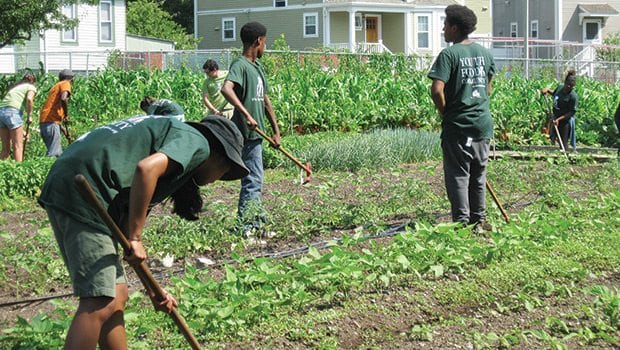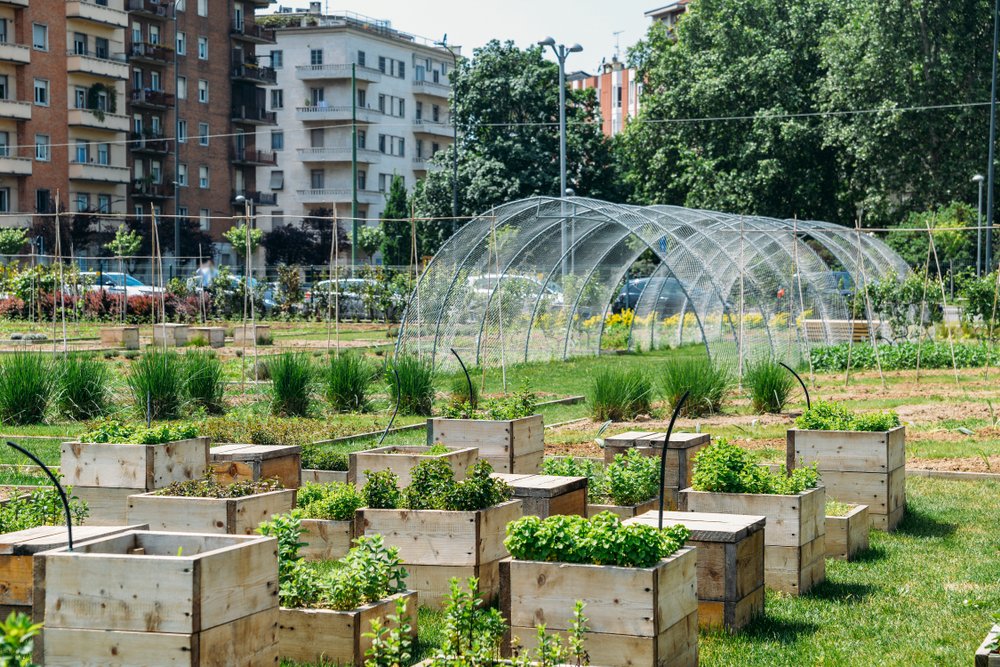In a world grappling with rapid urbanisation, climate change, and food insecurity, urban farming is emerging as a silent revolution in Nigeria. While skyscrapers climb the sky and asphalt covers the earth, a green movement is quietly taking roots right in the heart of the cities.
Urban farming is more than a trend; it is a lifeline. From Lagos to Abuja, Port Harcourt to Kano, Nigerians are turning rooftops, balconies, abandoned plots, and even vertical walls into productive food-growing spaces. This grassroots innovation not only feeds homes, but also fuels hope, employment, and sustainability.
What is urban farming?
Urban farming, also known as urban agriculture, refers to the cultivation, processing, and distribution of food in or around urban areas. Unlike rural agriculture, which often requires vast farmland, urban farming utilises limited space efficiently, often relying on modern farming techniques, such as:
Hydroponics (growing plants without soil), aquaponics (integrating fish farming and plant cultivation), vertical farming, container gardening, and rooftop gardens.
Why urban farming is gaining traction in Nigeria? Several factors are fuelling this shift toward city-based agriculture:
1. Population boom: Nigeria’s urban population is projected to reach 300 million by 2050 (UN-Habitat, 2022). Feeding this growing populace requires innovative food systems.
2. Rising food prices: Inflation and supply chain issues have made basic staples more expensive, pushing city dwellers to grow their own food.
3. Youth unemployment: With over 33% of Nigerian youth unemployed, urban farming offers an accessible path to entrepreneurship.
4. Environmental concerns: Urban farming helps reduce carbon footprints, minimise food miles, and promote environmental conservation.
Success stories from Nigeria’s urban farmers
Take the case of “FarmInTheCity”, a youth-led initiative in Lagos that uses hydroponics to grow vegetables on rooftops. With limited capital and training from non-governmental organisations (NGOs), the founders now supply over 30 restaurants and homes weekly. Similarly, “Green Basket Abuja” has transformed shipping containers into micro farms, using solar-powered systems to grow organic herbs and leafy greens. These examples show that with minimal space and investment, city farming can blossom into full-scale enterprises.
Benefits of urban farming in Nigeria
1. Improved food security: Fresh, nutritious food becomes accessible within local communities.
2. Income generation: Urban farmers can sell surplus produce at local markets, generating steady income.
3. Skill development: Farming teaches valuable skills in agribusiness, sustainability, and technology.
4. Reduced waste: Composting and recycling turn household waste into rich soil nutrients.
5. Greener cities: Urban greenery improves air quality, reduces heat, and enhances urban aesthetics.

Challenges facing urban farming
Despite its promise, urban farming in Nigeria faces several hurdles:
1. Access to land: Urban spaces are expensive and scarce.
2. Policy support: There is limited governmental policy to regulate or support urban farming.
3. Lack of awareness: Many Nigerians still see farming as rural, traditional, and low-status.
4. Water and infrastructure: Irrigation and consistent water access remain barriers.
However, these challenges are not insurmountable. Stakeholders including government, non-governmental organisation (NGO), and private sector players must collaborate to provide incentives, training, and infrastructure support.
Modern technologies empowering urban farmers. Urban farming is increasingly technology-driven, and making waves, as follows:
1. Mobile apps: Tools like FarmCrowdy and ThriveAgric connect urban farmers with training and market access.
2. Smart irrigation systems: These conserve water and improve yield.
3. Drones and Artificial Intelligence: Used for crop monitoring, pest control, and data collection. Such digital solutions embody the shift toward sustainable agriculture and environmental consciousness.
How to start urban farming with little capital. Starting an urban farm doesn’t require millions. Here’s how you can begin:
1. Start small: Use containers, tyres, or even polythene bags to plant herbs or vegetables.
2. Learn the basics: Free resources on YouTube or platforms like Coursera offer agriculture courses.
3. Seek grants and support: Programmes like LEAD (Local Economic Agricultural Development), offer funding for agri-startups.
4. Join a community: Online forums, WhatsApp groups, and local cooperatives provide invaluable support.
The future of urban farming in Nigeria
As cities continue to expand, the need for localised, resilient food systems becomes more urgent. Urban farming offers a way forward of combining technology, entrepreneurship, and environmental stewardship. It aligns with the United Nations Sustainable Development Goals (SDGs), particularly Goal 2 (Zero hunger), Goal 11 (Sustainable Cities), and Goal 13 (Climate Action).
Conclusion: Cultivating hope in concrete jungles
Urban farming in Nigeria is more than planting vegetables, it is planting possibilities. It is giving young people purpose, families nourishment, and cities a breath of fresh air. Whether you’re a student in Lagos, Ibadan, a stay-at-home parent in Port Harcourt, or an entrepreneur in Abuja, there’s a plot waiting for you, even if it’s just a bucket on your balcony. The time to grow the future is now.



